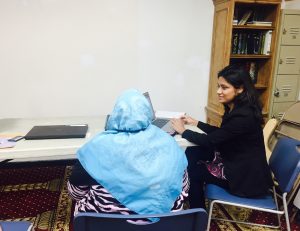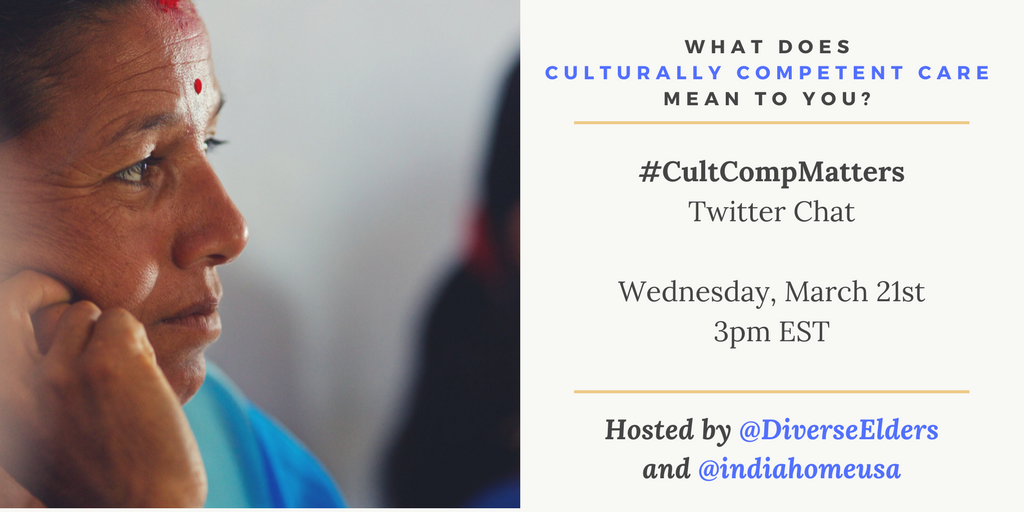Salma Abdul* was born and grew up in Bangladesh. Her children left for the US to study, then settled in the country as permanent residents. When her husband died, she found herself alone. Her children, unable to leave their lives in the US, but worried about her aging alone, asked her to come and join them in America. When Abdul arrived in the USA at 69 years of age, she had to find her feet in a brand new country and culture. Her adopted country was technologically more advanced and spoke a language she didn’t understand. Its culture was completely different from hers. Its systems were complex and, because she couldn’t speak fluent English, harder to navigate.
Abdul’s real troubles began when she became ill with kidney disease and had to visit a city hospital on her own. Her children were busy with work and demands from their young families, and they couldn’t spare the time. The hospital had few interpreters. Intake staff at the hospital couldn’t speak Bengali and instead made her access the Translation Hotline and tell the disembodied voice at the other of the phone her symptoms. Doctors ignored what she was struggling to say in her broken English, or dismissed her after a cursory examination.
Discrimination as a barrier to care
According to a study in the Journal of General Internal Medicine, researchers analyzed data from 6,017 Americans older than 50 who took part in a Health and Retirement Study and found that one out of five of these adults experience discrimination in healthcare settings, and one in 17 experiences it frequently. “Ageism in healthcare is very common and experienced by many older adults,” says lead author Stephanie Rogers, MD, MPAS, MPH, a clinical geriatric fellow at University of California San Francisco. There have also been several studies that prove that immigrants in particular report more discrimination in healthcare settings (Derose et al., 2009).

The fact that her team speaks Bengali and understands South Asian ways has made a huge difference in her clients lives, says Afroditi Panna, the Case Manager at India Home.
In Abdul’s case, she “found it difficult to understand the instructions the doctor gave her or the questions he asked her,” said Afroditi Panna, India Home’s Case Manager. Abdul’s daughter also spoke to Panna. Abdul’s daughter felt her mother was being ignored and treatment options were left unexplained, perhaps because she was an older immigrant woman of color who spoke hardly any English. The doctors and nurses would explain things to her when she accompanied her mother, Abdul’s daughter reported, but when her mother went alone, they would be unresponsive and “not nice.”
“That’s when we decided to start accompanying Salma to the hospital. As with so many of our immigrant elders, she didn’t know what questions to ask her doctor, how to fill out forms, or how to get to different specialists,” Panna said.
Case managers and cultural interpreters
In her experience with Care Management, Panna said, older adults need help with much more than just paperwork. Sometimes, she and her team are called upon to become interlocutors between cultures.
For instance, when a doctor asks a Bangladeshi senior how she feels emotionally or mentally, she’ll often answer, “amar onek tension,” or “I have a lot of tension in my mind.” In Bengali culture, the English word tension is often used as a catch all term for anxiety or depression or other distressing mental issues. Most American doctors don’t understand this culturally specific term, unless someone with cultural competence (like an accompanying case worker) can explain what the elder means.
Salma Abdul’s case highlights an important point that often gets lost in the scramble to deliver aging services: with the numbers of immigrant elderly surging in cities like NYC, cultural competency on the part of service providers becomes ever more important.
How to deliver culturally responsive care
At India Home, where we have culturally competent and multi-lingual staff like Panna working with our South Asian elder population, we have found that the culture from which our elders come affects all aspects of their behavior. For example, it impacts whether they seek help, the kind of help they seek, and the symptoms and concerns they bring to their doctor or their family’s attention. Here are some of the guidelines that our case workers and managers follow in order to become more cuturally responsive:
-
Maintaining the tradition of respecting elders: We focus on engaging clients in a manner that is consistent with their cultural values and adapting communication to be consistent with the client’s traditions. For example, in Asian and South Asian culture this would entail addressing our elders with a honorific and never by their name. It would also mean case workers listen respectfully (and patiently) so that the elder feels understood and establishes rapport before rushing into the business at hand. It would mean being respectful of cultural norms around touch, personal space and so on.
-
Involving the Family: Most of our immigrant elders live with their families and are dependent on them. Individualistic Western methods where the patient is solely responsible for their own welfare may need to be modified for aging South Asian elders. Other family members may have to be made familiar with the treatment process and involved actively in their care. To take Abdul’s case as representative: our case workers engaged with her family members and took the time to talk to them and explain her treatment.
-
Framing issues in culturally relevant ways: For example, music and art therapy is used in Western practice to reduce tension and stress, but some South Asians older adults may have restrictions based on their religious beliefs on the kind of music or they are allowed to listen to or the art they may practice. A culturally competent case worker may have to advise the Western doctor to come up with alternate methods to help her client to cope.
-
Facilitating collaboration: Many older adults have learned important ways of coping with life’s stress and have developed impressive resilience that is informed not only by their experiences but also by specific cultural beliefs and values. Our case workers learn a lot by showing cultural humility and listening and learning from our clients. These are some of the ways in which India Home’s case management department is developing client-agency interactions. It’s an evolving art, Ms. Panna says, and her team learns something new every day. But for her, she says: “Culturally competent case management means that for every one of our 75 active cases, our clients feel that we understand their concerns, and that we are treating them with respect. We want them to feel that we hear them.”

Join India Home and the Diverse Elders Coalition for a Twitter chat about cultural competence in aging services on Wednesday, March 21st at 3pm EST. Follow the hashtag #CultCompMatters to join in.
*Names have been changed to protect India Home clients.
The opinions expressed in this article are those of the author and do not necessarily reflect those of the Diverse Elders Coalition.

